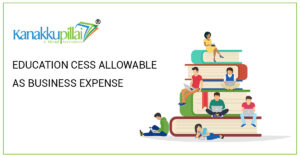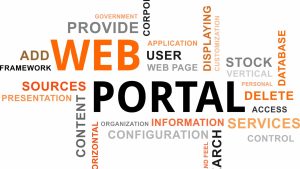![]()
If we were to round up the top ten successful people in the world and run an analysis of their Emotional Intelligence skill, there is a super high probability that 9 out of them will rank very high on their Emotional Quotient. Human Resources professionals, worldwide have been experimenting with various tools like Behavioural Events Interviews; psychometric tests etc. to figure out how candidates applying especially in high pressure roles, rate on their Emotional Quotient. So, what is this emotional quotient and how does it help you enhance your career graph. Let’s take a deeper look- Emotional intelligence (otherwise known as emotional quotient or EQ) is the ability to understand, use, and manage your own emotions in positive ways to relieve stress, communicate effectively, empathize with others, overcome challenges and defuse conflict.
Now a technically skilled individual may argue – Given my technical strengths & know-how – why should I even bother about managing my emotions. Well, the team at Kanakkupillai would like to differ and state thus – Our individual strengths & skills can take us only so far in our professional journeys. The proverb that ‘Man is a social animal’ is so apt here to explain the concept of EQ!
We do not work in silos in a company, we are either a part of a team/s, lead or manage a team/s, work for a client/s, manage client/s etc. In all these scenarios, we are dealing with the most complex emotional machine known in this universe – Human Beings. While emotional- mental patterns can be generic in individuals, given the diverse factors which determine the evolution of a person; we can safely assume that no two human beings are the same. They think, emote, act & react differently in similar situations. Since we are dealing with so many diverse emotional beings, so to say throughout our careers, it will do us a lot of good to not only become aware of our EQ, but also work towards consciously developing it further.
But just before that let us understand why else should we have a robust Emotional Quotient-
1) Your Physical Health –

Enough & more research has proven the ills of physical health caused due to a person’s inability to manage their emotions or so to say stress. Every time an individual goes through an emotional reaction like panic, anxiety, anger etc. – the apparent disharmony in various chakras or energy centres; causes a break down or disruption of proper functioning of their digestive systems, immune systems, respiratory systems etc. A poor EQ can very well be equated with the occurrence of any or many of the ailments above.
2) Your Mental Health –

Uncontrolled emotions and stress can also impact your mental health, making you vulnerable to anxiety and depression. If you are unable to understand, get comfortable with, or manage your emotions, you’ll also struggle to form strong relationships. This in turn can leave you feeling lonely and isolated and further exacerbate any mental health problems.
3) Your relationships-
By understanding your emotions and how to control them, you’re better able to express how you feel and understand how others are feeling. This allows you to communicate more effectively and forge stronger relationships, both at work and in your personal life.
4) Your social intelligence –

Being in tune with your emotions serves a social purpose, connecting you to other people and the world around you. Social intelligence enables you to recognize friend from foe, measure another person’s interest in you, reduce stress, balance your nervous system through social communication, and feel loved and happy. Now that you know the importance of a high EQ in your personal & professional lives, the KP team here comes as usual to your rescue to help you with enhancing your EQ skills-
1) Develop Self- Awareness
99 % of individuals live their lives in a state of complete denial. They shuttle their mental behaviour patterns between criticizing others, either verbally or mentally and blame games on external situations/people. Between these two check-posts they always seem to miss the obvious point that all external situations are a reflection of their inner rigid thought patterns. And these thought patterns generate negative emotional reactions which not only further feed their toxic thoughts but also spill onto others, thereby evoking negative emotions from them as well. Do you see the vicious cycle we as humans are stuck in? So what do you do? Become Self-Aware! Watch your thoughts often in a day, because these thoughts generate emotions and these emotions lay the foundation of your actions. The moment you become aware of a negative thought pattern within you – just observe it as a third person & replace it immediately with a counter positive thought – But remember do not condescend yourself!
2) Develop Self-Management
If you were to re-live any moments of high stress that you may have encountered in your past, you will realize that your ability to think clearly & make a rational decision gets totally obscured in those situations. The fundamental key to a high EQ in those trying circumstances is to a) Become Aware about the thoughts & emotions running through your system at that time b) Disconnect from unnerving or upsetting emotions without letting them override your system c) Choose beyond the impulsive emotions & behaviours; give others an opportunity to see you take charge of yourself & the situation in a healthy manner; take lead or initiative like you have never done before and final deliver your commitments in a professional, cool & suave manner.
3) Develop Social Awareness –
We live in a whirlpool of thoughts, emotions & energies all the time – not just ours but also of the hundreds of people we interact with on daily basis. And we learn to sense these energies and emotions through non-verbal communication. Social awareness enables you to recognize and interpret the mainly nonverbal cues others are constantly using to communicate with you. These cues let you know how others are really feeling, how their emotional state is changing from moment to moment, and what’s truly important to them.
4) Develop empowering relationships-
Working well with others is a process that begins with emotional awareness and your ability to recognize and understand what other people are experiencing. Once emotional awareness is in play, you can effectively develop additional social/emotional skills that will make your relationships more effective, fruitful, and fulfilling. A very integral aspect of productive relationships is the ability to feel empathy & appreciate each other often. This translates to understanding others & thoughts and feelings, thereby helping you connect with others. Instead of judging or labeling others, you work hard to see things through their eyes.
Enriching your EQ is not an overnight task, that’s agreed! But if you were to stay ahead in your game and achieve success in your personal or professional lives – this is definitely one of the most determining factors to look out for. So next time you find yourself in a challenging situation, just breathe easy and try following the simple tips shared above. We are confident it will make a world of difference to how you and others view yourself!
Until then, Keep Smiling & Keep Trending 🙂




